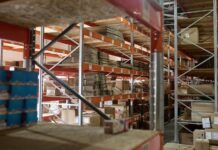The American Apparel & Footwear Association (AAFA) has expressed significant concerns regarding the recent announcement by the Office of the U.S. Trade Representative (USTR) to impose hefty new fees on ships docking at U.S. ports. This decision arises from the Section 301 investigation into China’s activities in the maritime, logistics, and shipbuilding industries.
AAFA has been a vocal opponent of these measures. On March 24, the association provided testimony during a USTR hearing and submitted comments against the proposal. Furthermore, AAFA conducted research indicating that the proposed charges would adversely affect U.S. farmers, workers, and the overall economy.
The actions taken today introduce a phased fee structure that specifically targets Chinese vessel operators, owners, and ships constructed in China. Alongside these fees, the USTR is proposing additional tariffs ranging from 20 percent to 100 percent on essential transportation equipment, including containers, chassis, and ship-to-shore cranes. These fees and tariffs are expected to hinder U.S. trade, resulting in losses for American businesses while escalating costs for U.S. consumers. The U.S. Port Fees Impact will be particularly pronounced as they increase operating expenses for shippers and affect the supply chain.
“We are deeply concerned that the newly announced port fees and shipping mandates are destined to have devastating consequences for American workers, consumers, and exporters. These measures are driving up shipping costs, shrinking GDP, and reducing U.S. exports. When ocean carriers raise rates, American families will pay the price through higher costs and growing product shortages, at a time when they can least afford,” stated Nate Herman, AAFA Senior Vice President of Policy.
“We fully support strengthening the U.S. maritime industry, but penalizing shippers for not using American-flagged or built vessels, when they cost up to five times more and remain in limited supply, is counterproductive. It is telling that the administration made this announcement after markets closed today, and when the markets won’t open again until Monday, masking a decision that is bad for the economy – bad for American farmers, bad for American manufacturers, bad for American businesses, and bad for hardworking American families.” The U.S. Port Fees Impact will likely create further economic strain, complicating the challenges already faced by the industry.
































